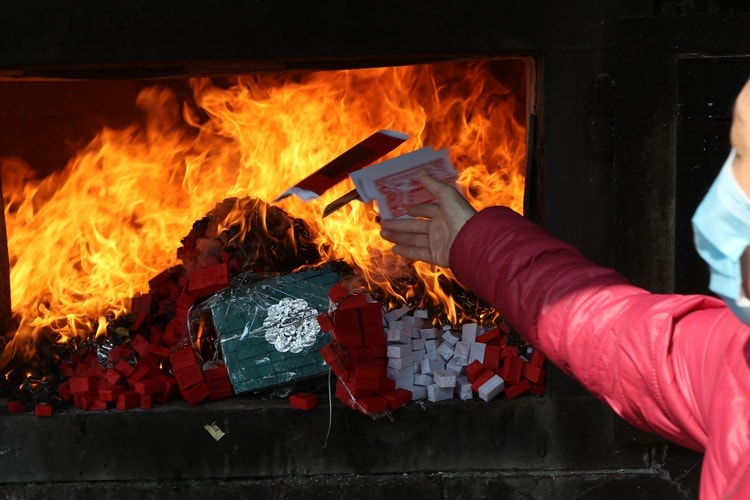The Thai government has urged ethnic Chinese people to use digital joss paper instead of burning real paper during the Lunar New Year.

This is one of many measures taken by the government to help reduce the current serious air pollution situation.
Deputy government spokesman Anukul Prueksanusak said the government is seeking the cooperation of ethnic Chinese by refraining from burning votive paper, votive paper and incense in traditional ceremonies. Instead, people are encouraged to use digital offerings, where items are symbolically “burned” online.
Mr. Anukul emphasized the government's commitment to improving air quality, especially when Bangkok and many other major cities in Thailand are facing dangerous levels of PM2.5 dust pollution.
Burning joss paper, which is usually ghost money or miniature paper items such as clothes, houses, vehicles and electronics, as well as incense, is believed to increase the level of PM2.5 fine dust. In addition, Mr. Anukul warned that burning offerings also poses a fire risk.
To remedy this, he recommends that Chinese people switch to using online offerings and electronic incense.
This year’s Lunar New Year falls on January 29, 2025, with the ancestor worship day on January 28. During this time, many ethnic Chinese-owned businesses will be closed for a few days.
The government also stressed the need to be cautious to prevent fires during the holiday, especially when burning real offerings on ancestral worship days.
Faced with increasing air pollution caused by vehicle emissions, the Thai capital Bangkok authorities have allowed people to use public transport for free for a week, starting January 25, in an effort to reduce the number of private vehicles and improve air quality.
People can ride buses, skytrains, subways and other public transport without paying a fare. The government will reimburse public transport operators for the costs.
The initiative is part of efforts to tackle severe air pollution, which has forced hundreds of schools to close and many workers to work from home.
Earlier on January 24, more than 350 schools in Bangkok were forced to close due to air pollution, which reached its highest level in five years. Authorities also advised people to work from home as the air quality index (AQI) reached 159 midweek, according to data from IQAir, a commercial air monitoring service based in Switzerland.
According to the Bangkok Metropolitan Administration, 352 schools across 31 districts have been closed due to severe pollution levels.
On January 24, the level of fine dust PM2.5, the main harmful element in air pollution, reached 108 micrograms per cubic meter, much higher than the World Health Organization's (WHO) recommended level of 15 for a 24-hour average exposure time.